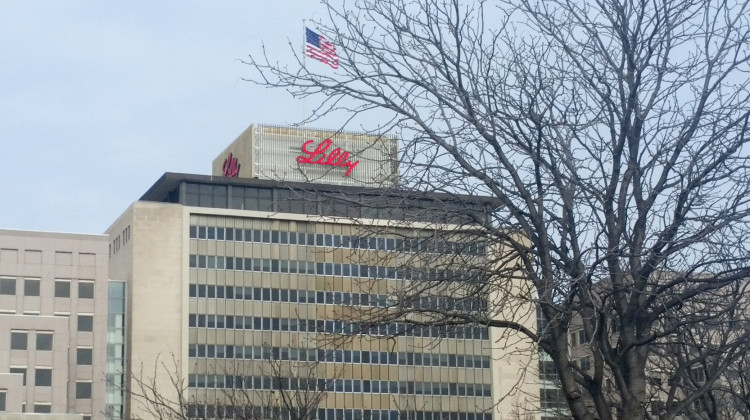
Lilly has given the National Institute on Drug Abuse samples of four molecules originally studied by the pharmaceutical company for psychiatric disorders and diabetes. Evidence from Lilly’s research on the molecules suggests they may help decrease anxiety, improve mood and increase satiation.
(Lauren Chapman/IPB News)Eli Lilly has partnered with the National Institute on Drug Abuse to test the possibility of some early-phase therapies to be repurposed to treat opioid use disorder.
Lilly has given the National Institute on Drug Abuse samples of four molecules originally studied by the pharmaceutical company for psychiatric disorders and diabetes, according to Senior Director of Early Phase Alliance Management Linda Rorick-Kehn.
Evidence from Lilly’s research on the molecules suggests they may help decrease anxiety, improve mood, and increase satiation, she said.
“So it makes sense that some of these treatments might help reduce relapse and reinstatement to drug seeking and things like that that can be a problem in opioid use disorder,” Rorick-Kehn said.
These new therapies would affect different parts of the brain compared to the current medications approved for opioid use disorder, she said. Instead of blocking the opioid receptors in the brain, they could potentially reduce anxiety and stress that can lead to relapse.
“Essentially, the mechanisms being tested as part of the collaboration are mechanisms that will be complementary to those leveraged by opioid treatments,” Rorick-Kehn said.
The collaboration is part of the Lilly 30X30 initiative; the company has set a goal to provide increased quality healthcare to 30 million people by 2030.
If NIDA finds promise in the molecules, Rorick-Kehn said Lilly will do additional testing or find a partner to do further testing and development.
Contact reporter Darian Benson at dbenson@wfyi.org. Follow on Twitter: @helloimdarian.
 DONATE
DONATE






 Support WFYI. We can't do it without you.
Support WFYI. We can't do it without you.